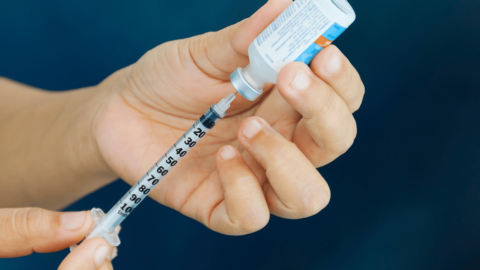Insulin is crucial for managing diabetes, particularly for those with type 1 diabetes (DM Type 1), where the pancreas does not produce enough insulin. It is also used in some cases of type 2 diabetes, usually alongside oral medication. Insulin types are classified by their onset and duration of action:
Rapid-Acting Insulin
- Onset: Begins to work in 5 to 10 minutes
- Peak: 30 to 90 minutes
- Duration: 3 to 5 hours
- Examples:
- Lispro (Humalog)
- NovoLog (Aspart)
- Aspart (NovoRapid)
- Apidra (Glulisine)
Regular/Short-Acting Insulin
- Onset: Begins to work in 30 to 60 minutes
- Peak: 2 to 5 hours
- Duration: Up to 12 hours
- Examples:
- Humulin R (Human Insulin R)
- Novolin R (Insulin R)
Intermediate-Acting Insulin
- Onset: Begins to work in 1 to 2 hours
- Peak: 4 to 12 hours
- Duration: Up to 24 hours
- Examples:
- Humulin N (Human Insulin NPH)
- Novolin N (NPH Insulin)
Long-Acting Insulin
- Onset: Starts to work in 1 to 2 hours
- Peak: Does not peak
- Duration: Up to 24 hours
- Examples:
- Levemir (Detemir)
- Lantus (Glargine)
Administration of Insulin
Insulin is administered subcutaneously, meaning it is injected just below the skin. Common injection sites include the abdomen, arms, or legs. Rotating injection sites is recommended to prevent tissue damage in any one area. Insulin should be stored in the refrigerator unless otherwise directed by a healthcare provider.
Did you know? Whether you need a refill of your insulin or assistance controlling your blood sugar levels, QuickMD can help. Our doctors can prescribe insulin online, giving you the convenience of receiving your medication from home. Get started with QuickMD today!




